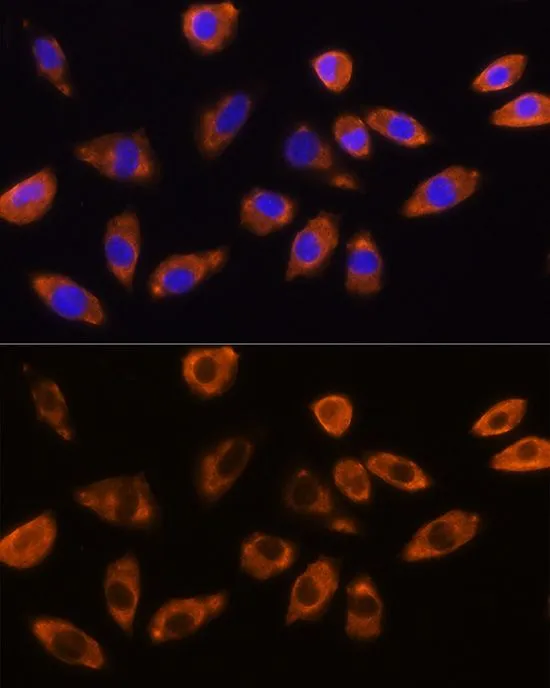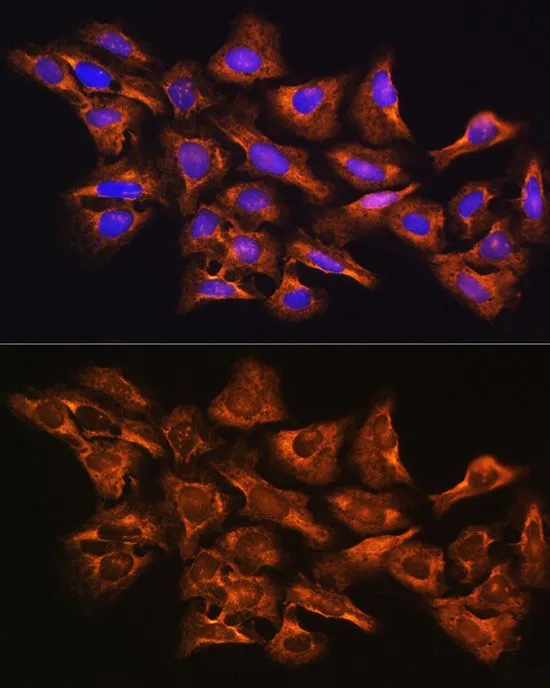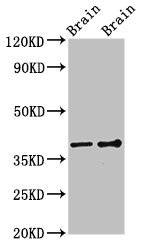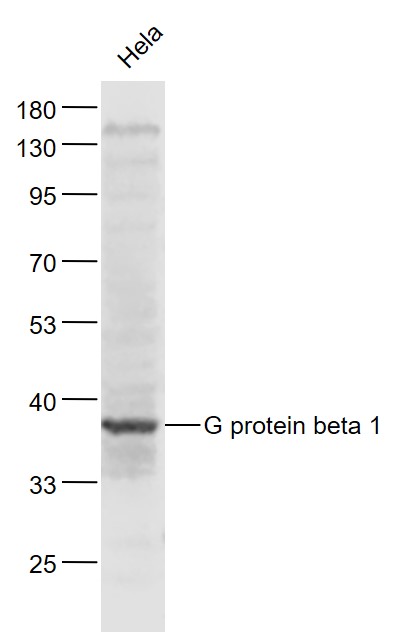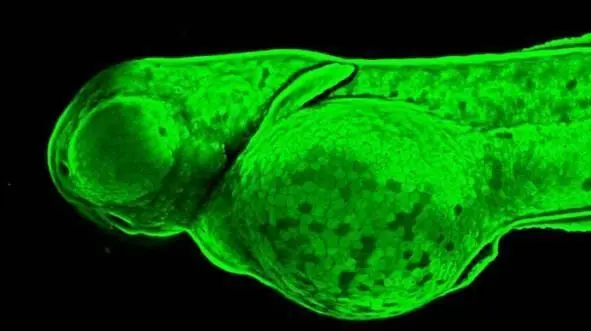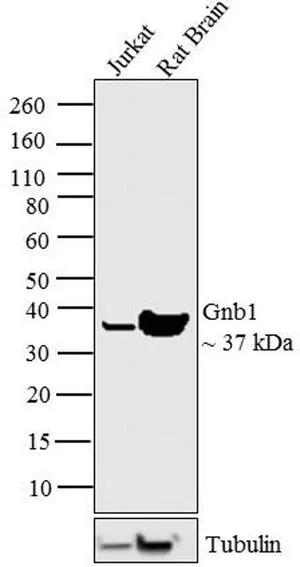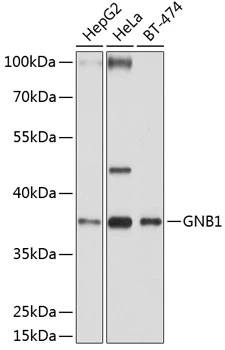
WB analysis of various sample lysates using GTX64622 GNB1 antibody. Dilution : 1:1000 Loading : 25μg per lane
GNB1 antibody
GTX64622
ApplicationsImmunoFluorescence, Western Blot, ImmunoCytoChemistry
Product group Antibodies
ReactivityHuman, Mouse
TargetGNB1
Overview
- SupplierGeneTex
- Product NameGNB1 antibody
- Delivery Days Customer9
- Application Supplier NoteWB: 1:1000 - 1:4000. ICC/IF: 1:50 - 1:200. *Optimal dilutions/concentrations should be determined by the researcher.Not tested in other applications.
- ApplicationsImmunoFluorescence, Western Blot, ImmunoCytoChemistry
- CertificationResearch Use Only
- ClonalityPolyclonal
- ConjugateUnconjugated
- Gene ID2782
- Target nameGNB1
- Target descriptionG protein subunit beta 1
- Target synonymsHG2A, MDS, MRD42, guanine nucleotide-binding protein G(I)/G(S)/G(T) subunit beta-1, beta subunit, signal-transducing proteins GS/GI, guanine nucleotide binding protein (G protein), beta polypeptide 1, heterotrimeric guanine nucleotide-binding protein 2A, testicular tissue protein Li 72, transducin beta chain 1
- HostRabbit
- IsotypeIgG
- Protein IDP62873
- Protein NameGuanine nucleotide-binding protein G(I)/G(S)/G(T) subunit beta-1
- Scientific DescriptionHeterotrimeric guanine nucleotide-binding proteins (G proteins), which integrate signals between receptors and effector proteins, are composed of an alpha, a beta, and a gamma subunit. These subunits are encoded by families of related genes. This gene encodes a beta subunit. Beta subunits are important regulators of alpha subunits, as well as of certain signal transduction receptors and effectors. Alternative splicing results in multiple transcript variants. [provided by RefSeq, Sep 2013]
- ReactivityHuman, Mouse
- Storage Instruction-20°C or -80°C,2°C to 8°C
- UNSPSC41116161

